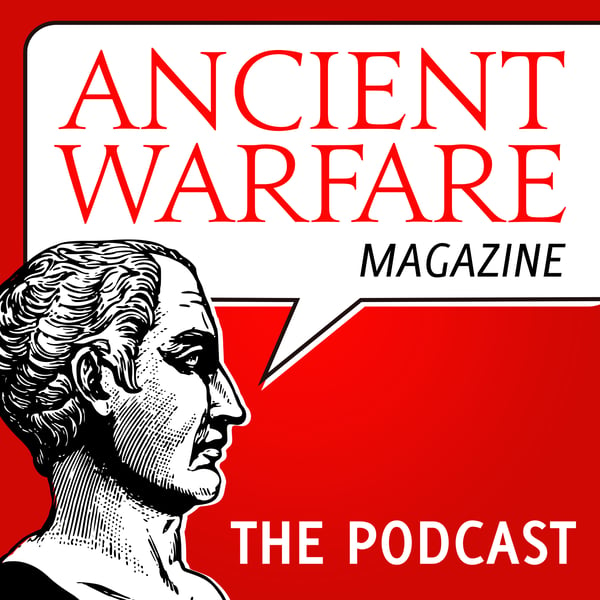The Seleucid Empire at War
Ancient Warfare Podcast
The History Network
4.4 • 631 Ratings
🗓️ 8 May 2015
⏱️ 50 minutes
🧾️ Download transcript
Summary
In this episode Angus is joined by Josho Brouwers, Mark McCaffery and Marc DeSantis.
We look at Ancient Warfare Magazine volume 8, issue 4 "The ancient world's fragile giant: the Seleucid Empire at war".
"Seleucus, who eventually acquired the epithet ‘Nicator’ was not a prime candidate to succeed to the largest share of Alexander the Great’s empire when the king died in Babylon in 323 BC. He certainly held some rank in Alexander’s chain of command, but he was not a member of the inner circle, and a host of men had greater claim to rule. As things turned out, this was a good thing for Seleucus, as an early start in the age of the successors usually meant an early end."
Transcript
Click on a timestamp to play from that location
| 0:00.0 | Hello and welcome to a new episode of the Ancient Warfare Magazine podcast. I'm Angus Wallace. Before we get started, I'd just like to mention a new podcast I've started, the World War II podcast. In the first episode, I talked to Paul Hilditch of the Northern World War II Association about the German half-track. For more information, you can go to www2podcast.com. |
| 0:23.1 | There you'll find links for iTunes and Facebook and everything else. |
| 0:27.3 | Okay, so in this episode of the Ancient Warfare Magazine podcast, we look at volume |
| 0:32.0 | 8, issue 4, the ancient world's fragile giant, the Seleucid Empire at War. |
| 0:39.0 | To discuss the topic, I'm joined by Joshua Browse, Mark McCaffrey and Mark DeSantis. |
| 0:44.8 | With the death of Alexander the Great, his empire descended into the wars of succession. |
| 0:50.1 | The Seleucid Empire rose from this. |
| 0:51.9 | Could someone tell us about the rise of Seleucus and the |
| 0:55.2 | foundation of the empire? In terms of the origins of Seleucus, Seleucus starts out. We think |
| 1:01.4 | as possibly one of the pages that it grows up with Alexander. There's no firm proof of that. |
| 1:08.4 | I don't really think it's more a supposition that well he ends up |
| 1:12.7 | becoming a commander in a fairly serious position even though he only appears sort of halfway |
| 1:19.6 | through Alexander's campaigns but appearing as he does in the position he has in a major, how can I say, leading a major infantry |
| 1:32.3 | brigade, he has to have been brought up in the same system because going on the Macedonian |
| 1:40.3 | traditions, any commanders be laid in the armies of Philip, Alexander, or the successes |
| 1:47.5 | later on, go along the system of a page system where boys are designated as the companions |
| 1:57.8 | of the heir apparent, brought up it with him in an educational system |
| 2:02.0 | and thereby designated for future roles in his administration |
| 2:07.0 | as trusted members of his, well, in terms of the Alexander and Philip groups, |
| 2:14.4 | they are, of course, the companions later on, when we talk about the later Hellenistic dinists, they are referred to as the |
| 2:24.3 | friends, the Philo. |
| 2:26.3 | But of course, somehow Seleucus has to come from that group originally. |
... |
Please login to see the full transcript.
Disclaimer: The podcast and artwork embedded on this page are from The History Network, and are the property of its owner and not affiliated with or endorsed by Tapesearch.
Generated transcripts are the property of The History Network and are distributed freely under the Fair Use doctrine. Transcripts generated by Tapesearch are not guaranteed to be accurate.
Copyright © Tapesearch 2025.

